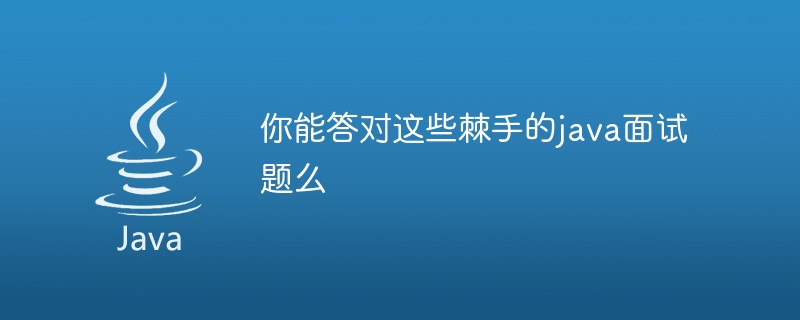

This article has compiled some foreign Java interview questions for you. I heard that it also stumped many people. Let’s take a look at these interview questions and see what makes them interesting.
1. What is the output of the following Java code?
public class Test {
public static void main(String[] args) {
method(null);
}
public static void method(Object o) {
System.out.println("Object method");
}
public static void method(String s) {
System.out.println("String method");
}
}Answer:
will print "String method". First of all, null is not an object in Java. In Java, we can assign null to any reference type. Strings in Java are objects of the Java.lang.String class. Here, the Java compiler chooses to call the overloaded method with the most specific parameter type. The String type is more specific than Object, so the method(String s) method will be called.
2. What is the output of the following Java code?
public class Test{
public static void main(String[] args){
Integer num1 = 100;
Integer num2 = 100;
if(num1 == num2){
System.out.println("num1 == num2");
}
else{
System.out.println("num1 != num2");
}
}
}Answer:
will print "num1 == num2". Whenever two different object references are compared using "==", the value is always "false". But here, num1 and num2 are autoboxed due to Integer caching. So num1 == num2 returns "true". Also, integer caching will only happen for values between -128 and 127.
3. How does garbage collection prevent Java applications from running out of memory?
Answer:
The Java garbage collector cannot prevent Java applications from running out of memory. It simply clears unused memory when the object goes out of scope and is no longer needed. Therefore, it is not guaranteed to prevent Java applications from running out of memory!
(Learning video sharing: java video tutorial)
4. Is Java "pass by reference" or "pass by value"
Answer:
Java is always "pass by value". However, when we pass the value of an object, we pass a reference to it because the variable stores the object reference, not the object itself. But this is not "pass by reference", which can be confusing for beginners.
5. How many String objects are created by the following code?
public class Test{
public static void main(String[] args){
String s = new String("Hello World");
}
}Answer:
2 String objects are created. One is in the heap memory, and the other is in the string constant pool in the method area.
6. What is the output of the following code?
public class Test{
public static void main(String[] arr){
System.out.println(0.1*3 == 0.3);
System.out.println(0.1*2 == 0.2);
}
}Answer:
The first sentence of print outputs false, and the second sentence of print outputs true. Because of rounding errors in floating point numbers, only powers of 2 can be represented accurately in simple binary notation. Numbers that do not correspond to powers of 2 must be rounded to fit a limited number of digits, so 0.1*3 is not equal to 0.3.
7. Is it possible to override or overload static methods in Java?
Answer:
It is possible to overload static Java methods, but it is not possible to override them. You can write another static method with the same name in a subclass, but it will not override the superclass method. It is called method hiding in Java.
8. What is the most reliable way to test whether two double values are equal?
Answer:
Double.compare(d1, d2) == 0
9. If the try or catch block executes a return statement, will the finally block be executed?
Answer:
will be executed. The only way to prevent the finally block from executing is to use System.exit().
10. What is the output of the following code?
public class Test{
public static void main(String[] args){
System.out.println("main method");
}
public static void main(String args){
System.out.println("Overloaded main method");
}
}Answer:
will print "main method". There will be no errors or exceptions because the main method can be overloaded in Java. It must be called from inside the main method to execute like other methods.
Related recommendations:java interview questions and answers
The above is the detailed content of Can you answer these tough Java interview questions?. For more information, please follow other related articles on the PHP Chinese website!